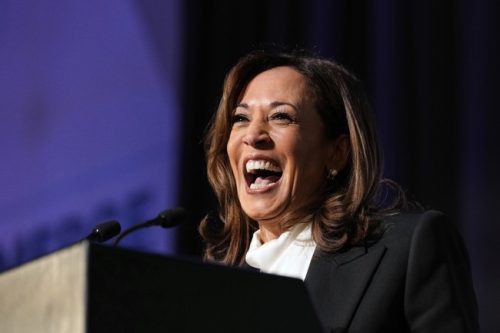CBS News is in the middle of a shakeup: a new editor-in-chief with a distinct viewpoint has arrived, the parent company handed down massive cost cuts, and veteran shows and bureaus are being rethought. This piece walks through who Bari Weiss is, the scale of the cuts, how staff are reacting, and the likely consequences for 60 Minutes and other flagship properties. The reporting includes direct staff descriptions and named targets that explain why the newsroom feels unsettled right now.
Bari Weiss arrived as editor-in-chief after CBS’s parent acquired her Free Press outlet, the publication she launched following a public exit from a major New York newsroom. She is a classical liberal and openly pro-Israel, a mix that clashed with her former employer and that makes her a provocative hire for mainstream broadcast news. Her role is often described as restoring balance, and leadership made clear cost discipline was already on the agenda before she came aboard.
The company-wide cost plan is huge: $2 billion in cuts are on the table, and that reality is reshaping daily life inside the newsrooms. Management has moved quickly to close bureaus and trim streaming initiatives, which has fed anxiety among staff. Even before the Weiss hire, rank-and-file employees were bracing for layoffs tied to the parent company’s strategic decisions.
For months, CBS News staffers have been on edge waiting for a long-expected round of layoffs as part of the $2bn in cost-cutting that had been promised after parent company Paramount’s successful merger with Skydance Media.
Those cuts began on Wednesday morning and are expected to affect fewer than 100 people. The company declined to provide a specific number.
One CBS News staffer described the cuts as a “bloodbath”, saying they were wide-reaching and affected a number of departments.
As part of the cuts, the network has closed its Johannesburg bureau and is cancelling its CBS Mornings Plus and CBS Evening News Plus streaming shows. The network’s Saturday-morning program will undergo a format change, according to a source with knowledge of the changes who was not authorized to comment. The network’s race and culture unit was gutted.
‘CBS Saturday Morning’ canceled, co-hosts Michelle Miller, Dana Jacobson are out: sources https://t.co/IMPCVMnhg7 pic.twitter.com/DtRJBYFXeR
— New York Post (@nypost) October 29, 2025
One concerned CBS News staffer who was not authorized to comment described the process as “nerve-racking”. “Seems no one is safe,” the person added.
Despite initial reports that a smaller group would be affected by a specific round of cuts, other internal tallies and sourcing point to a much broader trimming. One widely circulated figure puts total job losses near 1,000 across divisions, and several programs have already been pulled or retooled. The overnight message is clear: the network is redefining priorities and scaling back legacy investments in streaming and international presence.
Where Weiss’s influence becomes most visible is the rumored plan to overhaul 60 Minutes, a program with a venerable brand but a reputation among critics for aging talent and occasional ideological slants. Insiders say the new editor has already signaled she believes some aspects of the show have drifted left and that injecting fresh voices is part of her mandate. That makes longstanding correspondents and anchors natural targets for reconsideration.
The clock may be ticking for top talent at “60 Minutes”.
CBS News editor in chief Bari Weiss is looking to shake up the iconic TV news magazine — and casualties could include any number of the show’s star anchors, The Post has learned.
The 41-year-old newshound was tapped this month to restore “balance” to the Tiffany Network’s news unit, according to David Ellison, CEO of CBS owner Paramount Skydance — and insiders say she believes “60 Minutes” has drifted too far to the left, sources said.
Among Weiss’s rumored targets, according to insiders, is Scott Pelley. The anchor slammed CBS’s then owner Paramount in an on-air tirade this summer for inking a $16 million settlement with President Trump over allegations that “60 Minutes” “deceptively edited a Kamala Harris interview.
Likewise, Bill Whitaker, the correspondent who conducted the controversial Harris interview, may also be in the crosshairs after he was criticized for throwing softball questions and not vetting what was aired, sources said.
“Bari isn’t wrong to try to bring in new people,” said a CBS source, noting that Pelley and Whitaker are 68 and 74, respectively. “Most of the show’s correspondents and its viewers are geriatric.”
Names already leaving the building underscore the point: John Dickerson announced plans to depart at year-end, which opens the door for reshuffling on air and off. Executives face a difficult balancing act: steady the ship financially without losing the audience that still trusts long-running programs. For conservatives and independents who felt mainstream outlets tilted left, the incoming shake-up reads as overdue change.
Operationally, the network has closed foreign bureaus and scrapped or changed streaming slots, cutting costs while trying not to hollow out core reporting capacity. That picture has staff demanding clarity about who stays, who goes, and how remaining beats will be covered. Morale is fragile and the next moves will say a lot about whether CBS intends to re-center broad audience trust or simply shrink to match a slimmer budget.
What comes next will hinge on whether leadership can pair fiscal discipline with editorial adjustments that broaden appeal rather than narrow it. The network’s next personnel choices, programming decisions, and how it handles high-profile departures will determine if the changes amount to a real reset or merely a turbulent downsizing. For now, CBS employees are watching every memo and meeting for signs of the newsroom’s next direction.






